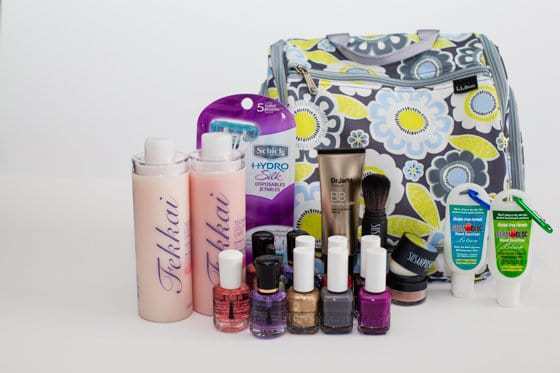Many people silently struggle with their mental health. That is because society still attaches such a stigma to mental health and therapy. People do not regularly talk openly about mental health issues or about the need to ask for help when you are struggling. It is important to talk to kids about asking for help and the benefits of therapy when they are young so they understand that there is nothing wrong with asking for help. Normalizing the benefits of therapy is an important life lesson we need to teach kids when they are young.
Talking About Mental Illness
Mental illness affects 20% of adults according to the National Institute of Mental Health. For something that affects nearly one in five grown-ups, it seems impossible that it is not something that is regularly talked about – either among adults or with our kids. That is not to say that no one talks about mental health and the benefits of therapy. More and more celebrities have come out to discuss their illness or that they have or are seeking help. There was even that song by Logic a few years ago with the title of the National Suicide Prevention Lifeline – 1-800-273-8255.

There is a difference between a celebrity or a popular song talking about mental illness and someone you actually know talking about mental illness. Suicide among teens and young adults is at an all-time high. The suicide rate among people between the ages of 10 and 24 increased by nearly 60% between 2007 and 2018. In 2017 suicide was the 2nd highest cause of death among people ages 15-24. Clearly, these children and young adults do not feel like they can say they are struggling or ask for help. As a parent, it is especially hard to imagine your 10-year-old feeling so hopeless that they commit suicide, but the fact of the matter is that it happens.
Normalizing mental illness and the benefits of therapy needs to happen at home. Talk about mental health at home. Talk about therapy with your kids. If you go to therapy yourself, talk openly about it. You do not have to give all the details of your therapy sessions or why you sought therapy in the first place. All you have to say are things like “I’m going to my therapy appointment today,” and “I had a good session with my therapist. It is nice to be able to talk things out with her that have been bothering me.”
Making therapy a normal thing that happens to regular people they know, shows kids more than anything else that therapy is a normal thing. But just because you do not see a therapist regularly, does not mean you cannot have meaningful conversations with your kids about mental health and the benefits of therapy. The goal here is to talk to kids about asking for help when they need it.
Read More: Couple’s Therapy And 4 Simple Considerations To Reduce Relationship Woes
Normalizing Therapy And Asking For Help
Whether or not you are someone who takes advantage of the benefits of therapy, the most important conversations you can be having with your kids are ones where they understand they can always ask for help if they need it. Talk to kids explicitly about asking for help if they are feeling sad, anxious, depressed, or when they are not really sure how they are feeling. Talk about feelings period.

Kids need to hear someone say that it is okay to say you are struggling. They need to hear that it is normal to need help. They need to hear that it is normal to feel any of the feelings they feel. If you do not see a therapist, you can give other examples of help that you have needed – needing the support of your partner and friends when your grandmother died or being overwhelmed when you brought your newborn home.
It is also okay to show them when you need help. If something is happening in your life and you are sad about it, it is okay for your kids to see you feeling sad or to see you cry. So often we bottle up our emotions and try to hide them from our kids so we do not harm them. But, in fact, that is probably doing more harm than good. If our kids think we are always happy and are always carefree and never struggle, they are going to think they should feel the same way. That is going to keep them from coming to us when they are feeling bad.

The more we normalize emotions – both good and bad – the more we normalize asking for help and seeking out the benefits of therapy. This way when your kids are older, they will hopefully be more apt to reach out if they are struggling.
You cannot protect your kids from everything and there is no guarantee that there will never be a time when they struggle silently. That is because everyone has a hard time. You absolutely cannot protect your kids from ever struggling, but the more normalized you make the benefits of asking for help and the benefits of therapy, the more likely your kids will not struggle on their own.
Read More: Family Therapy: The Benefits And Reasons To Consider
Talking About Therapy
If your child is at a place where they have asked for help or you recognize that they would benefit from therapy, continue being open and honest. Kids understand feelings, so explain that they are going to talk to an expert who can help them when they are feeling sad, angry, anxious, or anything else. Talk to them as a family over a meal or in a comfy space they feel safe and secure. Say things like “I know you have been feeling anxious lately,” “We know you have been having a lot of nightmares,” or “I know you have been feeling like you cannot be alone.”

When you can, and when appropriate, empathize with them. Say that you have nightmares or feel anxious too sometimes. Then tell them that you have talked to someone who can help. Explain that a therapist is someone who helps people understand their feelings and that they can help make the nightmares or being alone or whatever the problem is feel not as scary or tough.
Hopefully, you have had discussions before about mental health, feelings, and the benefits of therapy, but if you have not that is okay. There is no time like the present. Let them ask questions and answer them honestly. Let your child know that they can also ask the therapist questions if they have them (or if there is something you do not have the answer to). You will likely find that your children are not as nervous or worried about seeing a therapist as you are for them. But that is your job as a parent – to worry about your kids.
Read More: The Difficulty Of Living With Anxiety
Teaching our kids at an early age that it is normal to talk about their feelings and that it is okay to ask for help is an important life lesson. So often we are asked to keep our feelings to ourselves and that is something that needs to change – just look at the rise in suicide rates over the last decade. The benefits of therapy are something we should all understand so that if a time ever comes when we or someone we know needs to reach out for help, we are here to support them. Especially when that person is our kid.
WANT TO READ MORE?
Check out this article on The Exploration of Play Therapy for Children.
💖 NEWSLETTER: DAILY READS IN YOUR INBOX 💖
Sign up to receive our picks for the best things to do, see and buy so you can relax and focus on more important tasks! Let us help you be the best version of yourself you can be!
GET MORE FROM DAILY MOM, PARENTS PORTAL
Newsletter: Daily Mom delivered to you
Facebook: @DailyMomOfficial
Instagram: @DailyMomOfficial | @DailyMomTravel | @BestProductsClub
YouTube: @DailyMomVideos
Pinterest: @DailyMomOfficial
📌 LOVE IT? PIN IT!📌

Sources: Mental Illness, Suicide Among Teens and Young Adults Reaches Highest Level Since 2000, More Young People Are Dying By Suicide, and Experts Aren’t Sure Why, How to Talk to Your Kids about Therapy
Photo Credits: unsplash.com









































